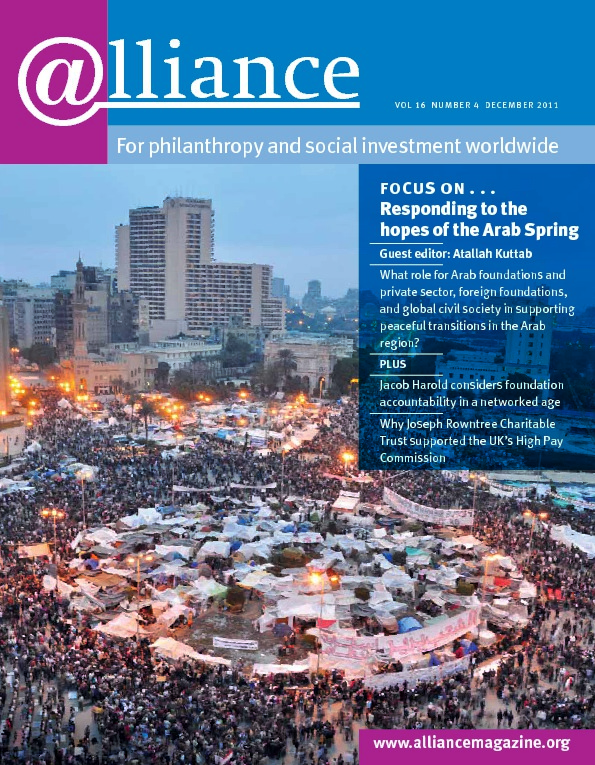I would like to congratulate you for the recent issue of Alliance looking at the effect of the Bill and Melinda Gates Foundation on the ecosystem of philanthropy. The different aspects that were covered by contributors enriched our understanding of the role and responsibilities of a high net worth individual (HNWI). One particular aspect pointed out by the contributors was the issue of accountability – not Gates’ own accountability as a foundation but its contribution to increasing the accountability of the philanthropic sector as a whole.
Accountability is not an abstract concept. It is actually extremely simple. As someone put it, accountability means saying what you mean, meaning what you say, and doing what you say you’re going to do. In short, taking responsibility for your words and actions. Although a simple idea, it is also one of the most elusive ones in management. For leaders, accountability is the recognition of responsibility for their actions as leader and for their consequences – in essence, the responsible use of power.
HNWIs are not only economically powerful, they are also influential in the political and social life of the countries where they live and made their original fortunes. Their actions and attitudes and the use they make of their wealth are followed by the media. In some ways, they can serve as a beacon for good, and unhappily for bad. In the Gates’ case, because of their size, visibility, iconographic presence and present and future influence over other philanthropic entities, they have a tremendous influence on the accountability of the whole sector.
Very recently, a Brazilian who features in the Forbes magazine list of HNWIs was exposed in the media for giving bribes to government authorities to further his business interests. At the same time, he made several philanthropic contributions to diminish violence in poor, depressed neighbourhoods. This illustrates how complex is the issue of accountability for the philanthropic ecosystem. Philanthropists must in their own conduct embody the basic human values, such as justice and fairness, which their giving is intended to promote.
Once HNWIs decide to become philanthropists, they also decide to serve as role models, not because of the amount of money they can contribute but because of the contribution their conduct as individuals behaving ethically makes to the overall accountability of the sector.
Marcos Kisil
President, Institute for Development and Social Investment, Brazil


Comments (0)